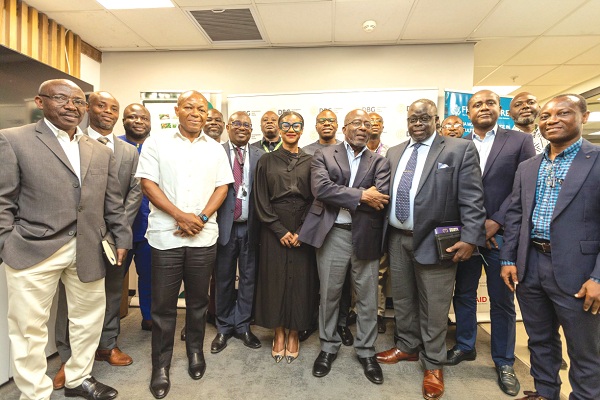
Development Bank moves to boost food security
The Development Bank Ghana (DBG) has embarked on an initiative to boost the production of poultry and three cereals in order to promote food security in the country.
Advertisement
The cereals are rice, maize and soya bean.
Under the initiative, which takes off with workshops, the bank will provide support to players in the value chain to boost the production of the commodities locally.
The Deputy Chief Executive Officer of the DBG, Michael Mensah Baah, said during a media interaction in Accra last Thursday that there would be four workshops to be held in Kumasi, Sunyani and Sogakope to engage key stakeholders.
The stakeholders include policymakers and producers of the commodities as well as others in the value chain.
Mr Baah said the interventions that would be put in place were aimed at supporting the growth of the national economy.
For instance, it could help in job creation and support exchange rate in terms of import substitution.
The Deputy CEO said with about $1 billion spent on rice imports and $600 million to import poultry annually, the country would save a lot through the intervention the bank was putting in place.
“The workshop will be, among other things, to identify the potential challenges, areas of concern and find the solutions to them.
Mr Baah said the bank had already held a stakeholder engagement with a number of stakeholders, including the Ghana Stock Exchange, the MasterCard Foundation and the United States Agency for International Development (USAID) on how DBG could do things differently to support the growth of the value chain.
Responding to a question on how much the bank had pumped into the agriculture sector since its establishment, Mr Baah said the bank had access to almost $700 million, saying “the funding gap that we see in agriculture is significant but we believe what we have is enough to start the journey of providing the funding that we need to support that sector”.
He added that the strategy of the bank was to act as a catalyst, explaining that “we don’t aim to do everything on our own, but we aim to bring all the various stakeholders who are also interested.”
Feeding
Speaking on the sidelines of the event, the Deputy Chief Economist of DBG, Dr Godwin Kojo Ayenor, said with the kind of economy that was envisaged, the country needed to feed itself and export the remainder.
"The private sector needs to be competitive and the government needs to create the environment for that to happen,” he said.
"There are spaces and gaps in this whole value chain and so we need to connect the demands with the supply and create the enabling environment for the private sector to invest," Dr Ayenor said.
The poultry industry is an important segment of the country's agriculture, with an increasing demand for its products.
It involves the rearing, breeding and marketing of domesticated birds such as chicken, turkeys, ducks and guinea fowls for their meat and eggs.
It is dominated by small-scale farmers who operate in rural areas and produce for local consumption.
Why the initiative
A few large-scale commercial producers operate on a larger scale and supply products to the local and international markets.
Rice is a major source of carbohydrate and essential nutrients for millions of Ghanaians.
Its production is concentrated in the northern parts of the country as well as the Volta Region, where the climatic conditions are favourable for rice cultivation.
The sector is dominated by small-scale farmers who cultivate on small plots of land using traditional methods.
Its production is mostly rain-fed, with irrigation accounting for only a small proportion.
Maize, also known as corn, is a staple food crop in the country and is used in a variety of food products, including maize flour, corn dough meal and cornflakes.
Its production is mainly carried out by smallholder farmers who cultivate the crop during the rainy season and in irrigated areas.
Protein
The soya bean sector is a growing agriculture industry in the country, providing a vital source of protein for human consumption and animal feed, especially the poultry sub-sector.
It is a versatile crop used for various purposes including oil, food production and animal feed.



